Toronto’s Q3 2025 Real Estate Snapshot: Is the Decline an Investment Opportunity?
The Toronto and Greater Toronto Area (GTA) real estate market has delivered a clear headline for Q3 2025: prices are down. The average home price across the GTA has slipped to $1.05M, representing a 5% year-over-year decline. Meanwhile, the MLS® Home Price Index (HPI) benchmark dropped 5.4% compared to last year.
For some, that might spark concern. But for long-term investors, the current correction could be the exact window of opportunity they’ve been waiting for.
Understanding the Numbers
The GTA market is experiencing a pause after years of rapid appreciation. Detached homes average $1.36M, semi-detached homes sit at $1.04M, townhomes hover around $930K, and condos have dipped to roughly $651K. Inventory levels remain higher than in the early 2020s, giving buyers more choice and negotiation power.
Mortgage rates, while still elevated historically, have shown signs of easing. With today’s best five-year fixed rates hovering in the mid-3% range, borrowing conditions are better than they were just one year ago. This combination of slightly lower rates and softer prices makes conditions attractive for buyers with a long-term mindset.
Why Declines Can Mean Opportunity
At Wealth Builders, we believe every purchase is an investment. And history shows us that moments of short-term decline often set the stage for long-term gains.
Price cycles are normal. Toronto’s market has weathered multiple dips in the past two decades—yet each time, prices recovered and went on to new highs.
Cash flow opportunities. With lower entry prices and stabilizing rents, investors may see improved cash-on-cash returns compared to recent years.
Upside potential. Toronto’s fundamentals—population growth, immigration, and limited land supply—remain intact. Buying during a softer market allows investors to position themselves before the next growth cycle.
Investor Strategies in Q3 2025
For investors evaluating Toronto real estate today, here are three strategies to consider:
Condo Acquisition for Long-Term Holds
Condo prices have dropped the most (-9.4% YoY). For investors, this creates a unique entry point in the downtown core where demand from renters remains steady. If history repeats itself, downtown condos will lead the recovery when confidence returns.Leveraging Assignments and Resale Deals
Higher inventory means motivated sellers. Investors willing to negotiate can find opportunities in both resale and assignment sales at prices that were unthinkable in 2021 or 2022.Cash Flow Analysis Over Speculation
The days of “buy now, hope later” are behind us. Instead, focus on properties where rents cover carrying costs or come close, knowing that equity growth will add another layer of return over time.
Risks to Keep in Mind
Of course, no investment is without risk. Buyers should account for:
Potential further rate volatility
Slower appreciation in the short term
Rising condo fees in certain buildings
Working with investor-focused realtors (like our team at Wealth Builders) ensures you’re identifying the right properties, with realistic projections, and not just chasing headlines.
Long-Term Outlook
Toronto remains one of the most in-demand real estate markets in North America. The city continues to add over 100,000 new residents annually through immigration, with limited new supply due to planning constraints and high construction costs. These fundamentals don’t change because of a single quarter’s price decline.
For long-term investors, Q3 2025 should be seen not as a warning sign but as a window of opportunity—one that rewards those who understand that real estate is a long-term play.
Final Takeaway
While headlines may highlight a “decline,” savvy investors should read between the lines. A ~5% dip in values, combined with slightly lower mortgage rates and strong rental demand, creates the kind of buying environment that rarely lasts long.
At Wealth Builders, our philosophy is simple: real estate is a marathon, not a sprint. Every purchase, when done strategically, is an investment in long-term wealth. Q3 2025 may just be the moment to start—or expand—your portfolio.

